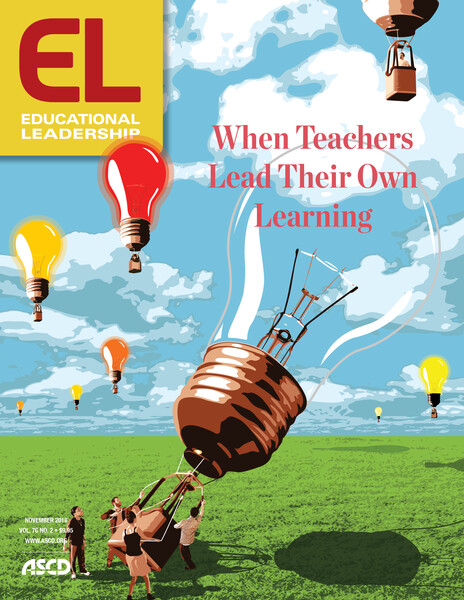Mandy Manning is the current National Teacher of the Year. A former Peace Corps member, Manning has taught in a variety of settings across the globe, most recently as a math and English teacher at the Newcomer Center for refugee and immigrant students at Joel E. Ferris High School in Spokane, Washington. Known for her emphasis on collaborative leadership and her advocacy for marginalized voices in education, she says she seeks not only to influence school culture, but "to change the hearts and minds of decision makers."
You've taught in a wide range of locations—including Japan, New York City, rural Texas, and Spokane—and worked with severely underprivileged student populations, such as immigrant and refugee students. How have those diverse experiences influenced your philosophy as an educator and teacher leader?
One thing that informs my philosophy is that, in all the cultures and systems I've been exposed to, kids share the same immense potential and outlook—they are excited to see what their future holds for them. The other thing is that there is no one way to teach every single group of kids. You have to have a willingness to meet kids where they are and accept them for who they are. So it's essential for educators to make strong individual connections with their kids, which means building relationships. You have to have a connection with every student, not just as a learner but as a human being. When you have those connections, you can then build instruction that will meet their needs.
You've said that you have a "determination to bring marginalized voices into decision making." Why is teacher voice, in your view, crucial to the direction of a school?
Because teachers are the ones directly working in the classroom. They're the ones experiencing how different policies and practices impact student learning and their ability to teach students. And it's very difficult for an educator to work within a system or framework that they weren't part of creating. That's like something being done to them, so that they have to figure out how to fit their style and expertise into this box that they've been given. Teachers' own practices and experiences must inform policies or decisions that are coming into the classroom. That's why it's particularly important for educators of color and educators who teach students of color and low-income students to have a voice in schools. If we continue to structure our systems around the average student or the dominant culture, we're not going to be able to meet the needs of the kids who don't fit in that box. So we need to have these educators not just adding their voice, but actually working on the policies that directly impact the classroom.
What advice do you have for administrators on creating more collaborative, empowered professional learning cultures in schools?
I would encourage them to give educators the latitude to develop their own professional learning experiences—to determine what it is they believe is most important to their classroom practice. If a school creates professional learning communities and then mandates their focus, based on a particular curriculum or teaching strategy, that's not necessarily going to meet the needs of the people in the community—because then they're being given things instead of developing something together. You have to ask, "What do you guys want as a community for your school, for your students, and for your own personal situation?" and then build from there.
What is the best professional development experience you've had as an educator?
By far, it was completing the National Board for Professional Teaching Standards process. That's a truly self-directed approach. They provide you with the structure through which you're going to grow as an educator, but the whole pathway that you take is completely self-directed. The process really encourages you to be very intentional and reflective about your practice. It was going through the National Board process that showed me that knowledge of students, making those connections and building those relationships, is really central. It gave me a language to be able to articulate that aspect of teaching, and it gave me an opportunity to dive into my practice, to measure and assess my own impact, and to understand the architecture of accomplished teaching—starting with that knowledge of students, then building goals, then reflecting and creating instruction, and finally assessing impact.
What is the central message you hope to convey to educators as the National Teacher of the Year?
To be intentional about making connections with their students, to be committed to their students, and to believe in themselves, believe in their colleagues, and assert themselves as experts—because that's what we are.
Are those things difficult to do in the current climate?
They can be, because asserting yourself is always a little bit uncomfortable. But it's also extremely empowering. And I'm seeing a lot of teachers stepping up right now. We're seeing collective movements across the United States. And we're also seeing many individual educators taking on leadership and advocacy roles—even running for office. It's pretty incredible. Seeing all these educators taking charge and asserting their expertise and their knowledge is really empowering, so that makes it easier for others.
Editor's note: This interview has been edited for space and clarity.






